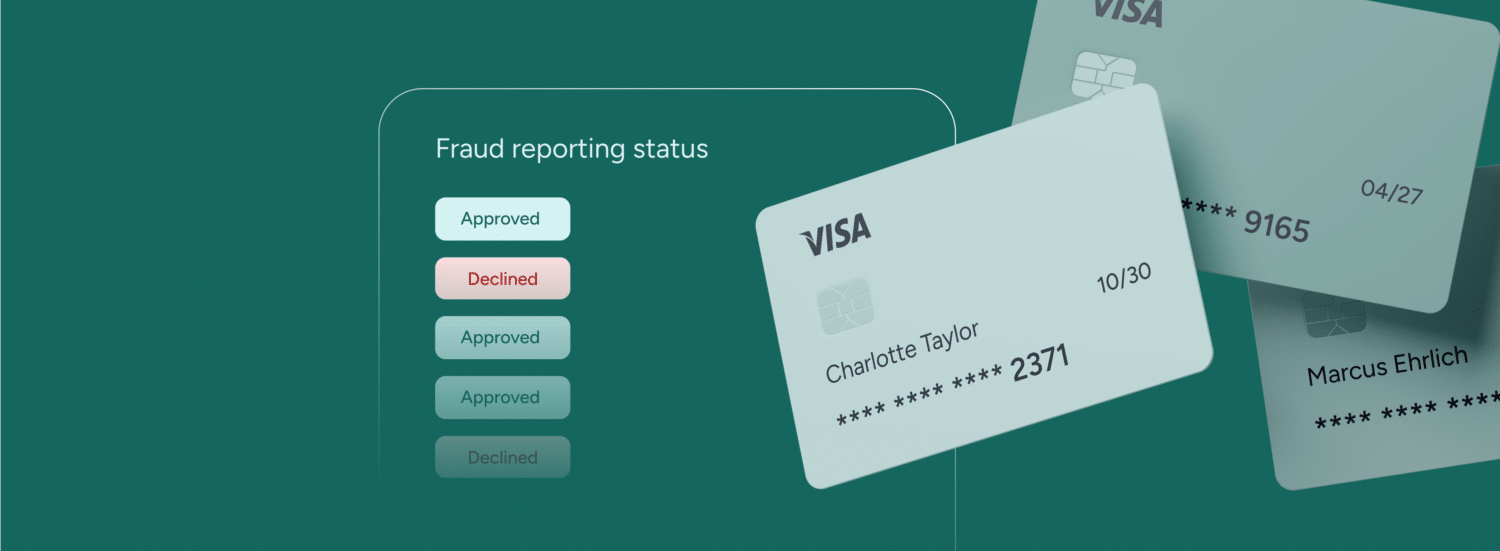The short-term rental (STR) industry faces mounting challenges from payment fraud and chargebacks as the sector continues its rapid expansion. Operating within the high-risk travel industry, property managers report that fraud-related chargebacks represent a growing operational challenge that can significantly impact profit margins – part of the staggering $20 billion that chargeback fraud cost merchants globally in 2023.
As the STR sector matures, smart fraud prevention isn’t merely a financial safeguard – it’s becoming a cornerstone of operational excellence. Forward-thinking property managers are seeking solutions that protect their interests while letting them concentrate on their core mission: delivering unforgettable stays and expanding their portfolios.
In this blog post, we’ll dive into what chargebacks are, go over some of the main prevention strategies, and explore how automation and machine learning (ML) are transforming fraud prevention in the STR industry.
What is a chargeback?
A chargeback occurs when a customer disputes a transaction with their card issuer, resulting in a forced refund. There are three main reasons for chargebacks:
- Criminal fraud: When unauthorized transactions or travel bookings are made with stolen payment methods, hacked accounts, or through identity theft. The legitimate cardholder disputes charges they never made, usually after discovering their card details were compromised.
- Friendly fraud: When legitimate customers file illegitimate disputes. In STRs, this often manifests as guests claiming a property wasn’t as advertised or services weren’t delivered, despite having completed their stay.
- Merchant error: When customers dispute charges due to business mistakes such as double-billing or processing errors. These chargebacks can usually be prevented through clear communication and proper transaction documentation, or resolved by promptly addressing customer concerns before they escalate to their bank.
While all three types of chargebacks pose challenges, this article focuses on criminal fraud prevention, as it is most commonly detected and prevented through proper screening. Importantly, the same tools and data used to prevent criminal fraud can also help businesses defend against friendly fraud (where transaction behavior analysis can identify patterns of frequent cancellations) and other types of invalid chargeback claims when they occur.
The critical importance of chargeback prevention
The impact of chargebacks extends far beyond immediate revenue loss. When fraudsters make bookings, they block inventory from legitimate guests. What’s more, high chargeback rates can lead to severe consequences – from hefty penalty fees to increased monitoring from payment processors, and in worst cases, merchant account termination. The financial toll is significant: for every successful chargeback, merchants typically lose 2.5 times the original transaction amount, factoring in fees, operational costs, and lost revenue.
Adding to this is the challenge of the dispute process itself. Card networks generally favor cardholders, making dispute resolution an uphill battle for businesses. With success rates typically falling between 20-30%, though varying by industry, and strict response windows of 30-120 days, the process of fighting chargebacks consumes valuable resources – taking an average of 2-5 hours per case to dispute.
While disputing them remains important, preventing fraudulent chargebacks in the first place is the most effective strategy for protecting your business. However, not all prevention approaches deliver equal results.
Key approaches to fraud prevention
There are multiple approaches to fraud prevention, ranging from basic manual review to sophisticated automated solutions. Understanding their strengths and limitations is crucial for choosing the right solution in today’s rapidly evolving fraud environment.
In-house manual review
Many businesses rely on manual chargeback prevention, where staff directly review and assess individual transactions for fraud risk. While many view this as a simple, low-cost solution, manual review significantly hampers operational efficiency, with teams spending countless hours screening bookings instead of enhancing their properties and guest services. The rapid pace of today’s travel industry compounds this issue, as data shows that almost three quarters of travelers using mobile apps to book through online travel agencies do so within one day of their stay – creating a time-critical window where manual fraud screening becomes especially challenging.
The operational burden becomes further apparent when considering:
- 24/7 staff availability for managing bookings across multiple time zones.
- Significant resource allocation during peak seasons when transaction volumes surge.
- Complex staffing decisions during slower periods when maintaining staff becomes costly.
Additionally, the constant need for employee training on evolving fraud trends and the challenge of scaling operations as a business grows make this approach increasingly difficult to sustain, leading to higher rates of both false declines (rejecting legitimate bookings) and missed fraud attempts, as teams struggle to maintain consistency at scale.
Rules-based prevention
Some businesses dependent on online transactions opt to combine fraud prevention teams with rules-based systems – either managed in-house or through an outsourced provider. These systems use predefined criteria like booking value thresholds, suspicious IP addresses, or unusual booking patterns to automatically flag potentially fraudulent transactions. Rules offer clear advantages over pure manual review: they help standardize the process, speed up assessment, and when outsourced, reduce internal resource demands. However, several key limitations exist:
- Rules are inherently rigid and can’t adapt dynamically to new situations – they require constant updating to keep pace with new fraud patterns.
- Complex rule sets can become unwieldy and difficult to maintain.
- Systems struggle to adapt to subtle changes in legitimate booking behaviors, leading to false declines and customer friction. For example, a rule blocking bookings where the guest’s location differs from their credit card billing address could wrongly decline digital nomads who travel frequently while maintaining a permanent address.
Scoring
Scoring systems represent an evolution from pure rules-based approaches. This method assigns numerical risk values to different transaction characteristics – such as booking lead time, guest location, payment method – and combines them into an overall risk score to help identify suspicious bookings. Though more sophisticated than simple rules, scoring systems face similar operational challenges:
- Score thresholds require constant adjustment to balance fraud prevention against false declines.
- Historical data used to set risk values quickly becomes outdated as fraud patterns evolve, making it difficult to accurately assess legitimate but unusual booking patterns.
- The need for manual review of flagged transactions creates similar staffing and scalability challenges to earlier approaches.
As we’ve seen, both rules-based and scoring approaches struggle with the dynamic nature of payment fraud. While these traditional systems served businesses well in the past, today’s sophisticated fraudsters combined with constantly evolving legitimate booking patterns, demand a more advanced solution – one that ML is uniquely qualified to provide.
Outsourced machine learning (+ manual review where required)
Advanced artificial intelligence (AI) and ML technologies have fundamentally transformed chargeback prevention by introducing unprecedented speed, consistency, and reliability to the process. This approach uses sophisticated AI to automatically assess each booking’s fraud risk by analyzing hundreds of data points in real-time. Unlike manual systems that struggle with volume fluctuations and staffing challenges, automated solutions deliver three key advantages:
- Process transactions in real-time, 24/7.
- Maintain consistent decision-making regardless of booking volumes.
- Scale automatically during peak seasons without additional resource investment.
The true power of these solutions lies in their sophisticated pattern recognition capabilities. Modern ML models excel at identifying subtle patterns in booking behavior that might escape human notice or rigid rule sets. They adapt dynamically to new fraud techniques as they emerge and process the complex, multi-variable decisions necessary for modern fraud prevention.
Working with a specialized third-party provider multiplies these advantages through access to industry-wide data. Such providers offer:
- Real-time access to extensive databases of known fraud patterns.
- Cross-industry intelligence on emerging threats.
- Advanced risk assessment algorithms trained on millions of transactions.
- Specialized knowledge of STR-specific fraud patterns and trends, including the ability to detect potential friendly fraud through guest behavior analysis.
- Continuous model updates based on evolving industry threats.
Additional security layers
While ML-powered fraud prevention provides robust protection, 3D Secure (3DS) authentication adds an extra verification step where customers confirm their identity directly with their card issuer. Mandatory in Europe under PSD2 regulations, 3DS can be strategically activated in other regions based on risk factors such as:
- High-value purchases above set thresholds
- Bookings that show suspicious patterns
- Orders from locations with elevated fraud rates
This additional security layer ensures strong authentication while maintaining a smooth checkout for most customers. Importantly, it reduces merchant risk by shifting fraud liability to the card issuer, who typically verifies the customer’s identity through their banking app or an SMS code.
Looking ahead
In today’s competitive STR market, effective chargeback prevention isn’t just about protecting revenue – it’s about creating a sustainable, scalable business model while maintaining customer trust. By leveraging automated ML solutions powered by industry-specific data, property managers can focus their resources where they matter most: creating exceptional guest experiences and growing their businesses.
Don’t let outdated fraud prevention methods hold your business back – reach out to Guesty to learn how our ML-powered solution, backed by deep industry expertise, can protect your business and support future growth.



